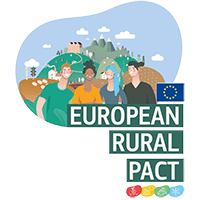Public employment services and rural NEETs aged 25-29: A case study from the South-West Region in Bulgaria
Environment and Social Psychology
Public employment services and rural NEETs aged 25-29: A case study from the South-West Region in Bulgaria
Vladislava Lendzhova, Valentina Milenkova, Albena Nakova, Emilia Chengelova
https://doi.org/10.59429/esp.v9i8.2730
Abstract
Background: The concept of youth not in education, training, and employment (NEET) is a relatively new popular concept. Its popularity is largely due to the fact that it takes into consideration different vulnerabilities such as unemployment and early school leaving, which are common among young people. The complexity of labour markets due to digitalization and globalisation has led to increased vulnerability for young people, particularly those aged 25-29. Bulgarian social policy often overlooks this group, who entered the labour market after the 2008 financial crisis, leading to unemployment or unstable employment. Our study aims to contribute to the successful integration of NEETs aged 25-29 into the labour market through increasing knowledge of relevant employment initiatives that have been implemented in Bulgaria. Specifically, it focuses on how these services are provided to young people living in rural areas. The main research question guiding this study is: “How can Public Employment Services (PES) effectively address youth unemployment and support vulnerable youths and rural NEETs in Bulgaria?”
Research methodology: The methodology is based on qualitative information gathered from public employment offices in rural areas and a survey of national PES offices in the country. We combined qualitative data thematic analysis with its quantitative examination (e.g. descriptive and reliability statistics; correspondence analysis) to identify similarity/difference patterns among studied cases.
Conclusions: A key conclusion from our study concerning NEETs (especially those with vulnerable backgrounds) is that many young people in the country might not have trust in public institutions such as the PES. They often need face-to-face personal contact with a person who can speak in a more informal manner. This is why cooperation with other service providers is fundamental.
Full paper: https://esp.as-pub.com/index.php/esp/article/view/2730
![]()



